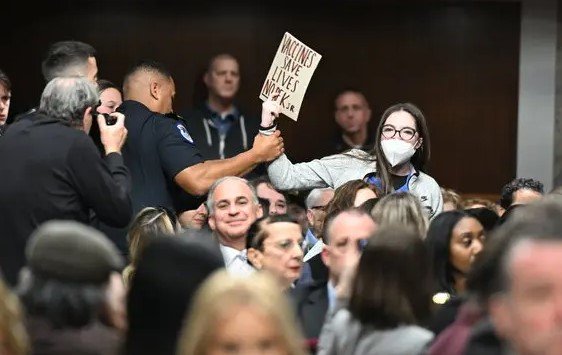A new chapter in leadership has arrived for both North Carolina’s Department of Health and Human Services (DHHS) and the national Health and Human Services department. However, the differences in the backgrounds and qualifications of these two new health chiefs could not be more striking.
Dr. Dev Sangvai: A Leader with Relevant Expertise
North Carolina’s newly appointed Secretary of Health and Human Services, Dr. Dev Sangvai, brings a wealth of experience that promises to benefit the state’s healthcare system. A well-respected family physician, professor, and healthcare administrator, Dr. Sangvai has dedicated much of his career to improving healthcare access and efficiency. Before stepping into this role, he served as the President of Duke Regional Hospital and the North Carolina Medical Society. His career has been marked by a focus on the health care workforce and patient care improvements, areas that directly impact the daily lives of North Carolinians.
Dr. Sangvai’s background offers the kind of hands-on expertise that is invaluable when managing the state’s health policies. He understands the importance of accessible healthcare, a crucial issue in a state that faces rural healthcare challenges and rising costs. His leadership is expected to strengthen health initiatives and advocate for better health outcomes, especially in underrepresented areas.
Robert F. Kennedy, Jr.: A Controversial Choice for National HHS Secretary
On the national level, the newly appointed Secretary of Health and Human Services, Robert F. Kennedy Jr., represents a starkly different kind of leadership. His background, largely shaped by his career as a lawyer and environmental activist, lacks the medical expertise that many argue is essential for managing a national health agency. Kennedy’s public persona has been marred by his promotion of conspiracy theories, particularly regarding vaccines. This has raised serious concerns among healthcare professionals and public health advocates who view his stance on immunization as not only scientifically flawed but also potentially harmful to public health efforts.

Kennedy’s position as HHS Secretary was a controversial one, with many questioning whether his appointment would result in effective leadership in addressing critical healthcare issues. Unlike Dr. Sangvai, Kennedy’s career has not focused on practical health solutions but rather on legal and environmental matters. His track record of spreading misinformation and opposing widely accepted medical guidelines, especially during the COVID-19 pandemic, has led to a deeply polarized view of his qualifications for the role.
Health Leadership and Public Trust
The differences between Dr. Sangvai and Robert F. Kennedy, Jr. are not just academic or professional but have broader implications for public health. A state like North Carolina, which struggles with healthcare access and disparities, needs a health leader who understands the intricacies of healthcare delivery, workforce development, and policy implementation. Dr. Sangvai’s experience in managing healthcare systems and addressing the needs of diverse populations in North Carolina makes him uniquely qualified to face these challenges.
In contrast, Kennedy’s history of controversial statements and positions on health issues risks undermining trust in the national health system. Public confidence in healthcare policies, especially in times of crises like pandemics, relies on leadership that adheres to scientific consensus and promotes policies based on data and expert recommendations. Kennedy’s appointment casts doubt on whether the national DHHS can provide that level of reliable leadership.
The Path Forward for North Carolina and the Nation
For North Carolinians, the hope is that Dr. Sangvai’s leadership will lead to tangible improvements in healthcare delivery across the state. With his focus on making healthcare more efficient and accessible, particularly for underserved communities, there is optimism that his tenure could leave a positive mark on public health.
On the national front, the future remains uncertain under Kennedy’s leadership. It remains to be seen how his controversial stances will influence the direction of national health policies and whether he will be able to effectively manage the department’s crucial role in public health. For now, Americans can only watch closely as these two very different leaders attempt to navigate their respective positions in health leadership.

Comments